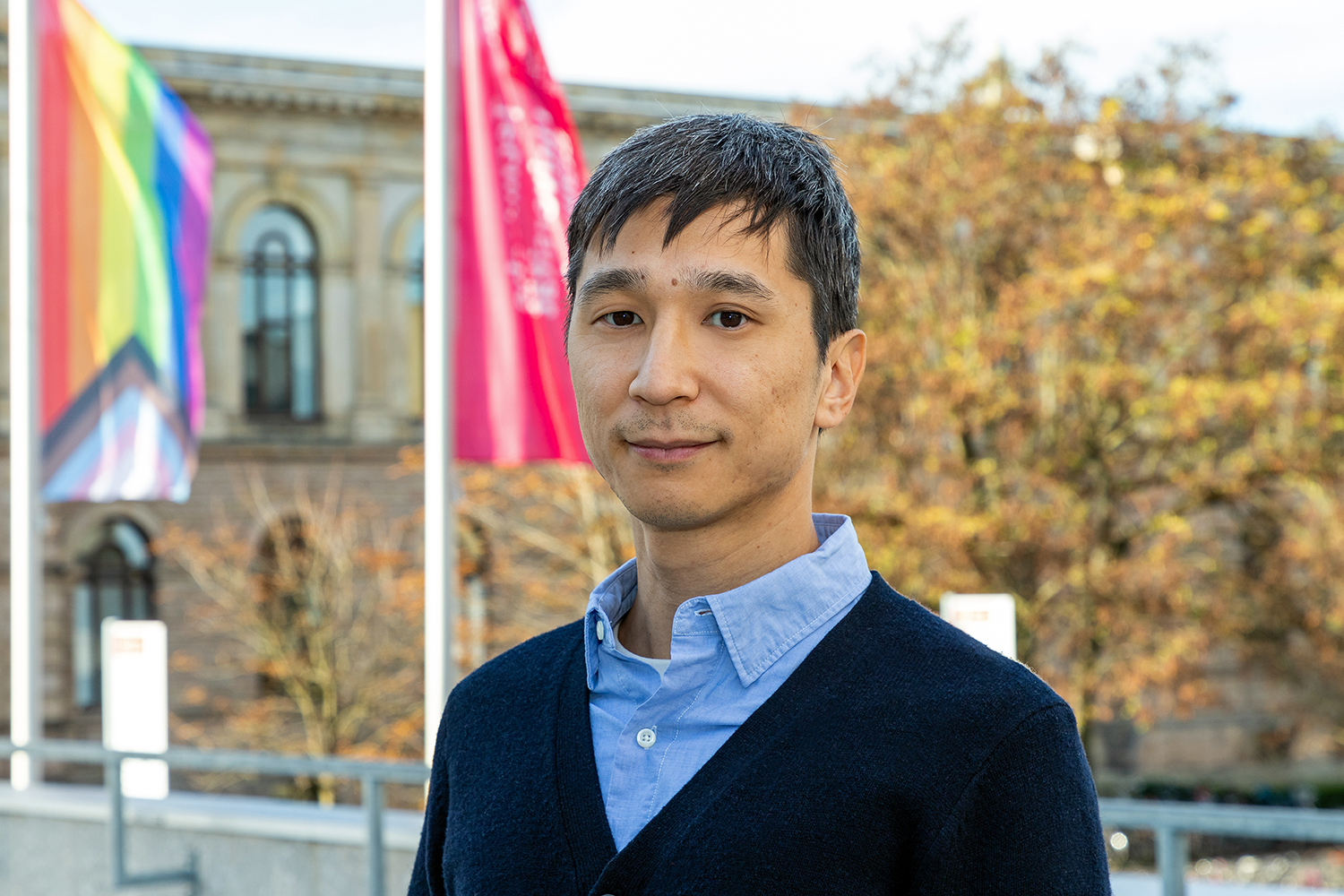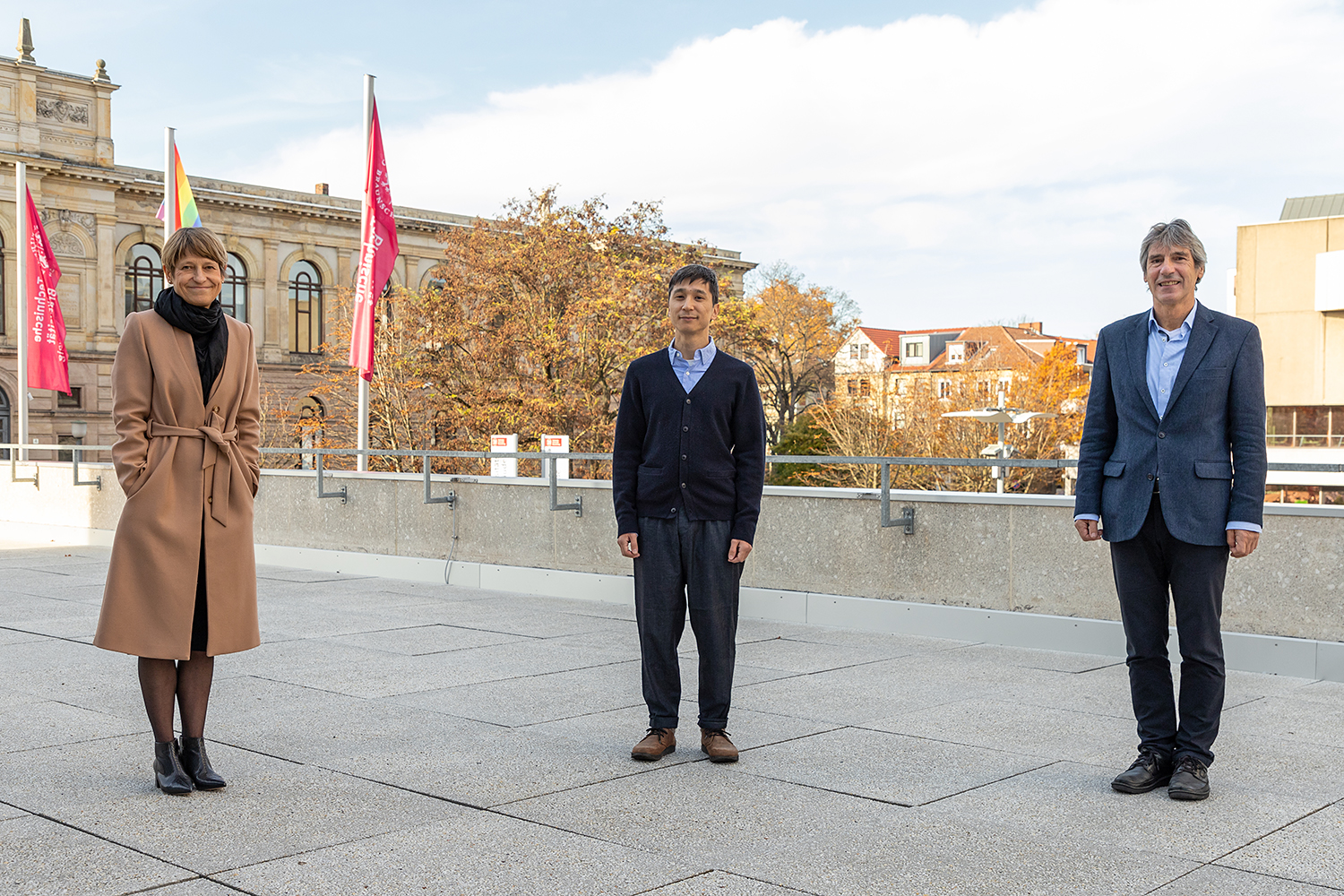The journey of the water Ilhan Özgen is new junior professor at the Institute of Geoecology and the Leichtweiß Institute for Hydraulic Engineering and Water Resources
“We need experts in water and geoecology to deal with the consequences of climate change,” Ilhan Özgen is certain. As new assistant professor for “Modelling of Urban Environment Interfaces”, he is now contributing his expertise in the field of process-based hydrological modelling to both the Institute of Geoecology and the Leichtweiß Institute of Hydraulic Engineering and Water Resources. Professor Ilhan Özgen tells us in an interview about what exactly he is working on in his research and what problems simulations bring with them.

Professor Ilhan Özgen from the Institute of Geoecology and the Leichtweiß Institute for Hydraulic Engineering and Water Resources. Picture credits: Kristina Rottig/TU Braunschweig
From California to Braunschweig: Professor Özgen, you recently did research at Berkeley Lab. The weather there was probably a bit better than here. Why did you decide to come to TU Braunschweig?
I chose TU Braunschweig for two reasons: The first reason is the topic of my junior professorship, which connects the Institute of Geoecology (IGÖ) and the Leichtweiß Institute for Hydraulic Engineering and Water Resources (LWI). By training, I am a civil engineer with a focus on water engineering, and after my PhD I worked a lot with geoecologists. That’s why I was excited about the possibility of continuing my research in both areas.
The second reason is the researchers at the IGÖ and LWI, whose research I knew from publications. I am very much looking forward to working with the groups at IGÖ and LWI.
You are a junior professor for “Modelling of Urban Environment Interfaces”. What exactly do you deal with in your research? How would you explain your work to someone like me who does not come from this field?
In my research, I work on methods for the numerical simulation of fluid flow and transport processes in natural and urban space. Such simulations can be used for predictions or for process understanding. For example, it is possible to calculate what will happen if the sea level continues to rise or how a pollutant spreads underground. When such simulations are combined with ecological models, we can determine how the ecosystem reacts to such disturbances.
A major problem with these simulations is that they are often very computationally expensive. If several processes are to be simulated simultaneously, the computational effort is even higher. I am interested in approaches that reduce this computational effort or that make it possible to run computationally expensive simulations on high-performance computers.
You work at both the Institute of Geoecology and the Leichtweiß Institute of Hydraulic Engineering and Water Resources. What are the main research areas and projects you will be working on at TU Braunschweig?
My research focuses on hydrological processes at the interface between the city and nature and how these two systems influence each other.
Coastal cities and coastal ecology are particularly affected by climate change. Modelling approaches in combination with experimental methods can lead to a better understanding of the relevant processes. This will enable us to develop strategies to make coastal regions more resilient.
Another topic is hydrological processes and the transport of substances in urban and peri-urban areas. In urban areas, blue-green infrastructures are often used to counteract environmental problems. These are, for example, infiltration areas and permeable pavements. I would like to research the effect of such measures on the urban water balance.
What made you decide to do research in this area?
The first lecture in fluid mechanics I attended at TU Berlin. The pictures of turbulent flows appealed to me very much. It immediately fascinated me that these chaotic structures can be described mathematically.

Ilhan Özgen at his appointment as junior professor with TU President Prof. Angela Ittel and Prof. Wolfgang Durner, Dean of Faculty 3. Picture credits: Kristina Rottig/TU Braunschweig
What was your best experience as a scientist? What excites you about your research?
I don’t have a single stand-out experience, but I’ve always really enjoyed my work, especially because I’ve always been involved in very nice research groups.
What excites me most about my research are the mathematical models and the innovative numerical methods we use to model physical processes.
What role does science communication play in your work?
My research is interdisciplinary and thrives on cooperation and exchange with my colleagues.
Furthermore, communication with the public is also very important. Making urban spaces more resilient requires an open dialogue. Case studies show that measures imposed from above are often not accepted by the population and are not effective. If the population is involved in the planning process and can contribute local knowledge, this often leads to broader acceptance and more effective measures.
In this respect, science communication, but also a two-way exchange, is an important part of my work.
What will your teaching look like and what would you like to pass on to the students?
In teaching, I would like to develop lectures on the modelling of urban hydrosystems and on the modelling of the so-called critical zone, in consultation with my colleagues at the IGÖ and LWI. These lectures will be offered in English. In addition to modelling, I would also like to address the topics of urban resilience and environmental justice.
Climate change will greatly alter life on Earth. We need experts in water and geoecology to manage the consequences of climate change and to secure our common habitats.
For which problem would you like to develop a solution?
A very specific answer would be that I would like to develop efficient uncertainty quantification methods for hydrosystems. The difficulty here is the so-called curse of dimensionality: the computational cost of these methods increases incredibly quickly as the number of uncertainties increases.
In general, I want my research to help improve the resilience of our cities to climate impacts in an equitable way.
